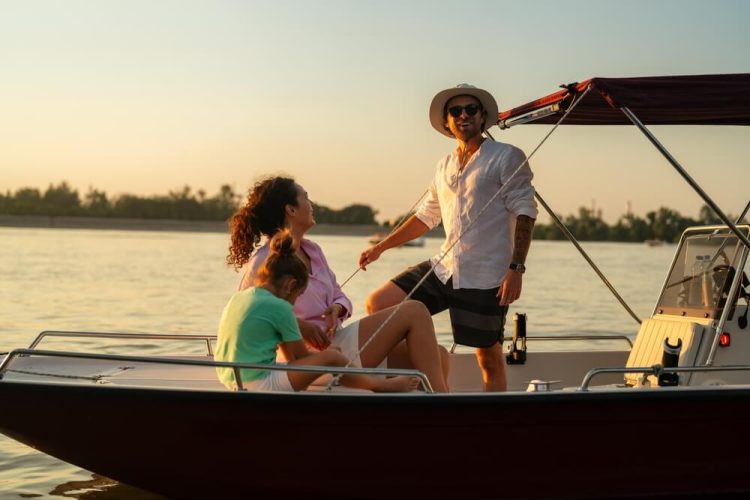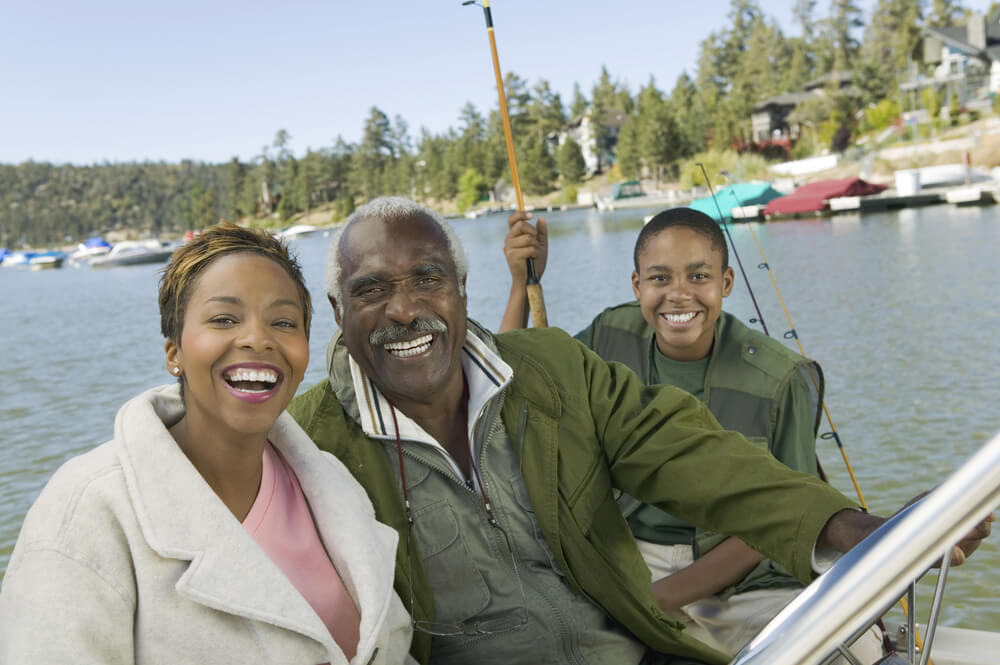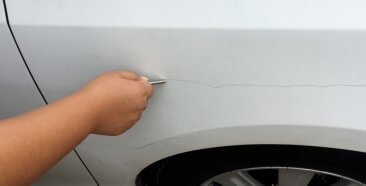
If you’re searching for boat insurance, chances are your launch time’s already on the calendar. The cooler’s stocked, the life jackets are out, and your weather app is pinging more than the group chat. Before you ease down the ramp, let’s make sure your coverage is as dialed in as your day on the water.
This guide gets straight to what matters: what boat insurance near me covers, what drives the cost, and the fine print you can’t skip—navigation limits, deductibles, lay-up periods, hurricane haul-out, and more. You’ll learn how to compare local providers and quotes, lock in the most effective discounts, and choose the right policy with confidence. At Freeway, we’re with you every step of the way—keep reading!
Why Boat Insurance Is Essential
If it’s your first time insuring your boat, the most important thing to keep in mind before you head out on your next trip is that it’s like a life jacket for your wallet.
The right policy covers liability if you hit a dock or injure someone, and it also protects your hull, engine, and electronics from collisions, theft, or storms. Many marinas and lenders require proof of insurance before they’ll give you a slip or financing, and useful add-ons—on-water towing, fuel-spill cleanup and wreck removal, even hurricane haul-out—can keep a mishap from sinking your weekend.
Liability Coverage for Accidents
On the water, even small mistakes can carry big bills. Boat liability insurance pays for injuries and property damage you cause to others—think medical care for a passenger on another boat, or repairs after you clip a dock. It can also include fuel-spill liability and wreck removal, which marinas and local authorities may require after a serious incident. If you regularly take guests out, water-sports liability (for towing tubes or skis) is worth asking about.
Protecting Your Investment Against Damage
Still not sure why you need boat insurance? Think about hull repairs, outboard replacements, and electronics—none of that is cheap, and without a boat protection plan you’d be paying for it all out of pocket.
Physical damage coverage (often called “hull” coverage within watercraft insurance) addresses your boat, motor(s), permanently attached equipment, and sometimes special gear. Add trailer coverage if you haul to different ramps and consider on-water towing for dead batteries or fouled props.
Types of Boat Insurance Coverage
Not all watercraft coverage is built the same. Policies mix and match protections for crash damage, weather and theft, and even personal effects—plus choices like agreed value or actual cash value. Below, we break down the core pieces so you can build a package that fits how and where you boat.
Comprehensive vs. Collision Coverage
Most boat insurance packages blend two big pillars. Collision coverage steps in after impact. If you clip a dock, trade gelcoat with another hull, or meet a submerged log on the way out of the marina, collision pays to repair your boat (minus the deductible you chose). Fault doesn’t change that—it still applies, and your insurer can sort things out later. Typical fixes here include hull and rub-rail repairs, prop and lower-unit work, and sensor/electronics re-calibration after a bump.
Comprehensive coverage handles non-collision losses—the “it-happened-to-me” stuff. Theft, vandalism, fire, lightning, hail, and certain weather damage all live in this lane. If a storm drops hail, a thief nabs your stainless prop, or lightning cooks your chart plotter, comprehensive is the side that answers.
You’ll choose actual cash value (ACV) or agreed value settlement. ACV subtracts depreciation; agreed value pays a preset amount. If your boat is newer or heavily upgraded, agreed value can be worth the slightly higher premium. If you’re running an older, well-maintained rig, ACV may make sense.
Coverage for Theft and Weather-Related Damage
Thieves often target outboards, props, and electronics; weather risk could be thunderstorms, hail, hurricanes, or freeze damage. You can add extra coverages that make a big difference:
- Hurricane haul-out: Pays to move or secure your boat when a named storm approaches.
- Freeze protection: Helpful in shoulder seasons if temperatures dip.
- Equipment & personal effects: Expands limits for fishfinders, trolling motors, rods, coolers, and safety gear.
- Emergency services: On-water towing, jump starts, soft-ungrounds, and fuel delivery.

How to Compare Boat Insurance Providers
Comparing providers can get messy—quotes and promises blur. This section gives you a simple way to line up options to get the best boat insurance for your waters, budget, and season. We’ll move into the details so the right choice stands out without guesswork.
Reading Policy Details Carefully
Two policies can look identical in price but differ in the fine print. Review:
- Navigational limits: Are you covered on nearby lakes only, coastal inlets, or offshore to a stated mileage?
- Lay-up or winterization terms: Some policies expect the boat to be stored during specific months.
- Operator restrictions: Minimum age or boating-course requirements for anyone at the helm.
- Deductibles: Standard vs. named-storm deductibles in coastal regions.
- Salvage and wreck removal: Prefer policies where these are in addition to the hull limit, not taken from it.
New to this? Start with the FAQs on boat coverage—it’s a helpful walkthrough.
Asking About Discounts and Bundling Options
Discounts are the fastest way to lower your coverage costs without reducing your protection. Contact a local agent to ask about:
- Boater-safety courses (e.g., state-approved, NASBLA).
- Multi-policy bundling with home or auto.
- Multi-craft (two boats on one policy).
- Claims-free history.
- Anti-theft devices and geofencing.
- Paid-in-full, autopay, or paperless billing.
Checking Reputation and Claims History
Price matters but so does how a company shows up after a loss. Scan reviews for claims handling, response time, and repair-network quality.
For practical marina insurance tips, ask your dockmaster or yard which carriers are easiest to work with locally. A quick call to an independent agent can also reveal who communicates well and who’s a stickler for paperwork.
Tips for Finding the Best Local Boat Insurance
Going local makes the search faster and smarter. Every harbor has its own rhythm—storm patterns, slip rules, trusted repair shops, and the carriers that actually show up after a claim. Plug into that neighborhood knowledge and “boat insurance near me” turns into the best policy for your waters.
Getting Multiple Quotes
More quotes = better context. Plan to compare at least three options for your watercraft insurance:
- Gather your info: HIN, engine details, purchase date, safety gear, storage/parking, average hours, waters.
- Decide on settlement type (ACV vs. agreed value) and a deductible you can afford.
- Ask for the same limits each time so you’re comparing apples to apples.
- Request separate pricing for key add-ons (towing, equipment, hurricane haul-out) so you can mix and match.
Leveraging Local Knowledge and Recommendations
If you fish tournaments or cruise with a yacht club, ask around. Marina managers, service yards, and dealer sales teams know which carriers are flexible on watercraft coverage and which have strict navigational boxes. Their feedback, combined with your quotes, gets you closer to the appropriate plan for you.
Note: For seasonal preparation and safety, you might need more in-depth guidance—for example, if you’re getting your boat ready for summer.
Working with a Trusted Insurance Agent
Independent agents who write multiple carriers can save you time and re-shop at renewal. They’ll translate exclusions, double-check your marina’s insurance certificate requirements, and help you document upgrades (photos and receipts).
If you rent boats occasionally or list yours on a platform, ask about special endorsements.
Insure Your Boat in Minutes with Freeway
Whether you’re comparing options near you, building a first protection plan, or fine-tuning a renewal, Freeway shops multiple carriers and tailors coverage to your craft, budget, and home waters. Start a quote online, call us for friendly guidance, or visit a nearby office—quick answers, clear choices, coverage that fits.
FAQs
How Does Location Affect Boat Insurance Rates?
Where you operate and store the boat influences boat insurance costs. Coastal ZIPs may see storm-deductible rules and higher comprehensive rates; inland lakes can trend lower. Theft rates, marina requirements, and whether you store in a locked facility also matter. Tell your agent about any out-of-area trips so navigational limits match your plans.
What Types of Boats Require Insurance?
Rules vary by state and marina, but nearly any powered vessel benefits from watercraft insurance—from bass boats and pontoons to cabin cruisers and PWCs.
Lenders typically require full coverage if your boat is financed, and many marinas request proof of boat liability coverage before granting a slip. If you only rent occasionally, ask about renter-specific options.
Do Boat Insurance Coverage Requirements Differ by State?
Yes. Some states or marinas impose minimum liability, child PFD, or proof-of-insurance rules, and hurricane-prone regions may include special storm deductibles or haul-out conditions. If you trailer across state lines, check local regulations and navigational limits.
Can I Bundle Boat Insurance with My Auto or Home Policy?
Absolutely! Bundling can earn a discount and place everything on one bill. Ask your agent to compare bundles with standalone quotes; sometimes a specialist carrier plus a separate home policy is the better value.



